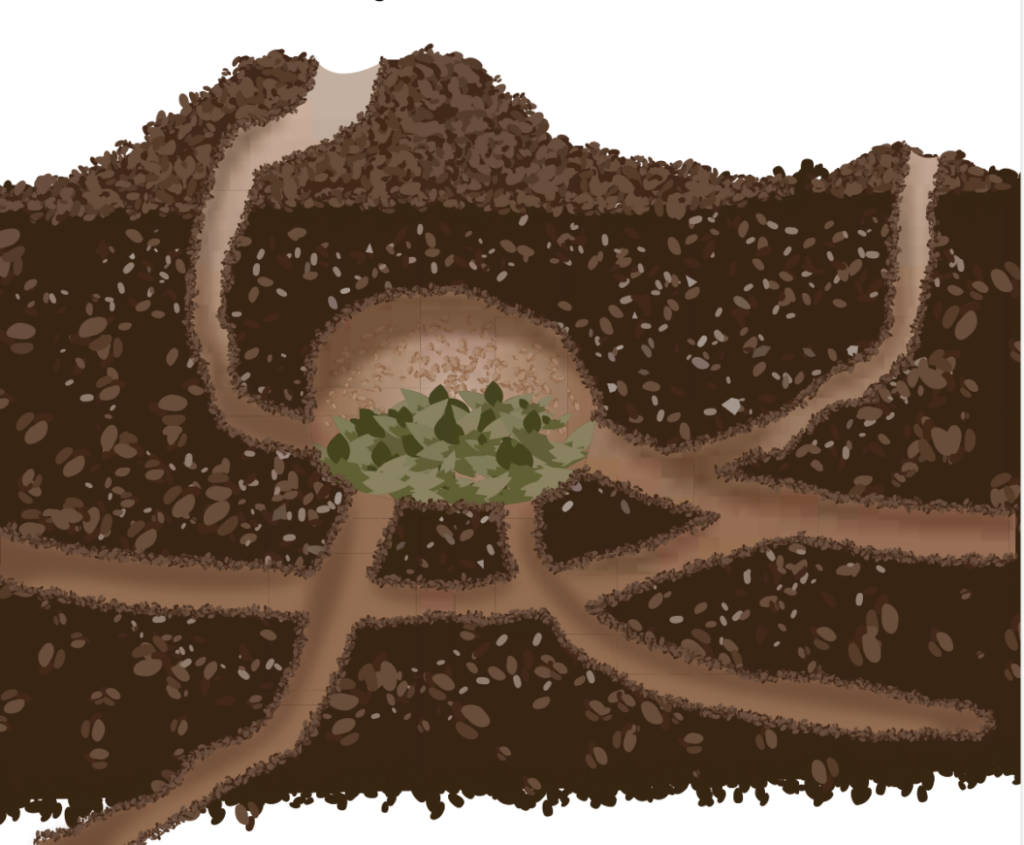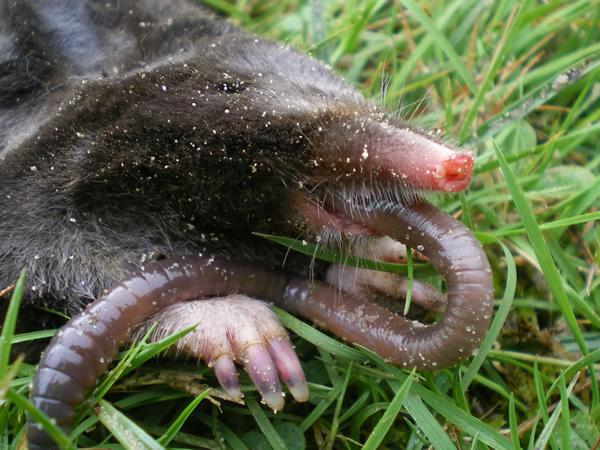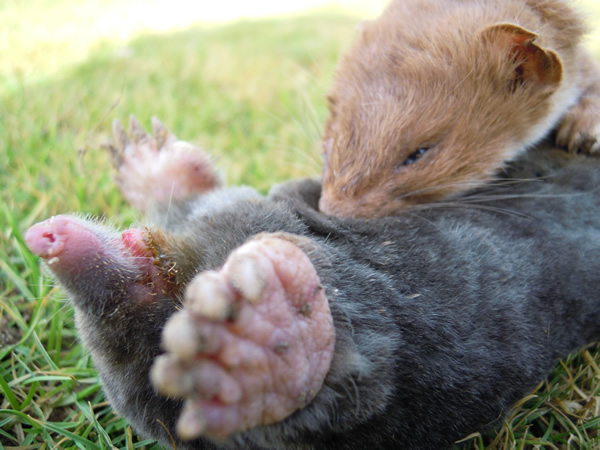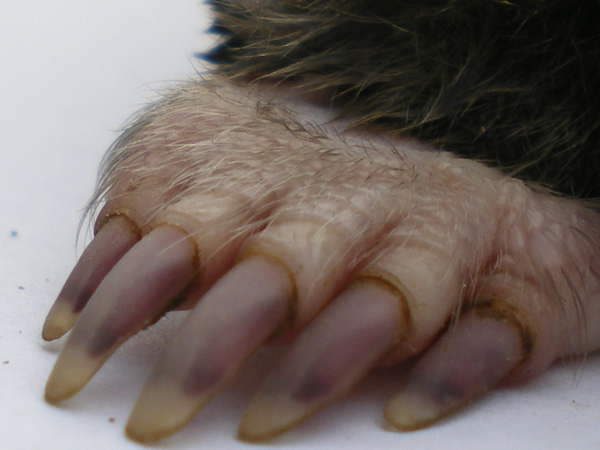All about the mole
Omnipresent in our environment, the mole remains a mystery: many misconceptions still circulate about it. Remember:
You only get rid of the one you know best!
- Burrowing mammal capable of lifting twenty times its own weight
- Not present in Corsica, Ouessant and Ré
- Oversized, backhoe-like front legs
- A subtle sense of smell
- Myopic, but sensitive to light intensity
- Highly developed hearing, but invisible ears
- A tail always in contact with the top of the gallery
- A fine, velvet-like coat for progressing through narrow galleries
- Lungs twice as large as normal, for breathing underground
- She’s not a hemophiliac
- You can’t drown it, because it swims underwater
- It hates draughts, a fault we’re going to use to trap it.

Mole nest, located under the molehill
The Mole in Figures
A 12-hour fast kills it, which is why the mole stocks up on worms and stores them in a gallery near its nest.
1
The average length of the gallery network varies from 200 to 250m, for a single mole!
0
à 250
Depending on the amount of earthworms in your soil, there can be from 5 to 50 moles per hectare.
0
à 50
Mole litters consist of 3 to 5 young Moles give birth in spring The young stay with their mother for about 1 month to nurse.
à 5
The mole lives from 4 to 6 years, dying when its teeth are worn down by the abrasive sand in the soil.
0
à 6
The enlarged shape of its forelimbs enables it to dig up to 20 metres of tunnels per day!
0
The Mole in pictures



